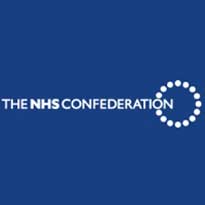NHS ‘salami slicing’ cuts – Dorrell
- 24 January 2012

The Commons’ health select committee has warned that the NHS is resorting to traditional “salami-slicing” to try and deliver the massive efficiency savings demanded by the ‘Nicholson challenge.’
In a report issued this morning, the committee says it is worried that the NHS has failed to get to grips with the scale of the challenge, first articulated by NHS chief executive Sir David Nicholson, to save £20 billion over the next four years to bridge the gap between flat funding and rising demand.
Although Sir David himself has repeatedly stressed that the challenge requires fundamental changes to the way care is delivered, auditors and think-tanks have found that many NHS organisations are focused on making immediate reductions to operating costs.
The committee’s report also worries that the Department of Health may be pushing trusts in this direction, by calling for 40% of the required savings to come from reductions in the price paid for treatments through the NHS tariff, and only 20% to come from quality, innovation, productivity and prevention (QIPP) programmes.
It also says there is a real danger that the NHS is already falling behind on challenge. A fifth of organisations (19%) failed to deliver their planned efficiency savings last year, and a quarter (23%) of the savings that were made were made on a non-recurrent basis.
“This means NHS bodies will need to find extra savings in 2011-12, to match the one-off savings made in 2010-11, to reach the target of £20 billion recurrent savings,” it notes; although the DH has insisted that the NHS is on track.
Committee chair and former health secretary Stephen Dorrell stressed that the report was not a simple attack on the government, but a call for progress towards more integrated health and social care services.
“The need to provide high-quality and efficient services that meet local needs within the funding available must be addressed as a matter of urgency,” he said. “This requirement underlies the importance of developing new structures which deliver genuinely integrated services.”
The committee’s report says that “as a matter of urgency” the DH should look at greater “passporting” of NHS funds to social care, while progress is made on the integration agenda.
However, it also says the committee “heard evidence that the restructuring process is frustrating NHS organisations in their efforts to make savings.”
And it concludes that “the reorganisation process continues to complicate the push for efficiency gains… [by] creating disruption and distraction that hinders the ability of organisations to consider truly effective ways of reforming service delivery and releasing savings.”
Unions have leaped on this section of the report, with Unison using it to urge the government to drop the “deadly” Health and Social Care Bill.
This is meant to enact the shake-up of commissioning and the introduction of more competition to the acute sector first unveiled in the ‘Liberating the NHS’ white paper. But it has been stuck in Parliament for a year and is now opposed by the BMA, Royal College of Nursing, and Royal College of Midwives.
Christina McAnea, Unison head of health, said: “The government must listen and act on what people are saying. We know that patients and health workers will ultimately pay the price as trusts are forced to make cuts to generate short-term savings.
“This is compromising quality, damaging the way the NHS works. It is time to drop this deadly bill and safeguard the NHS for the future.”



